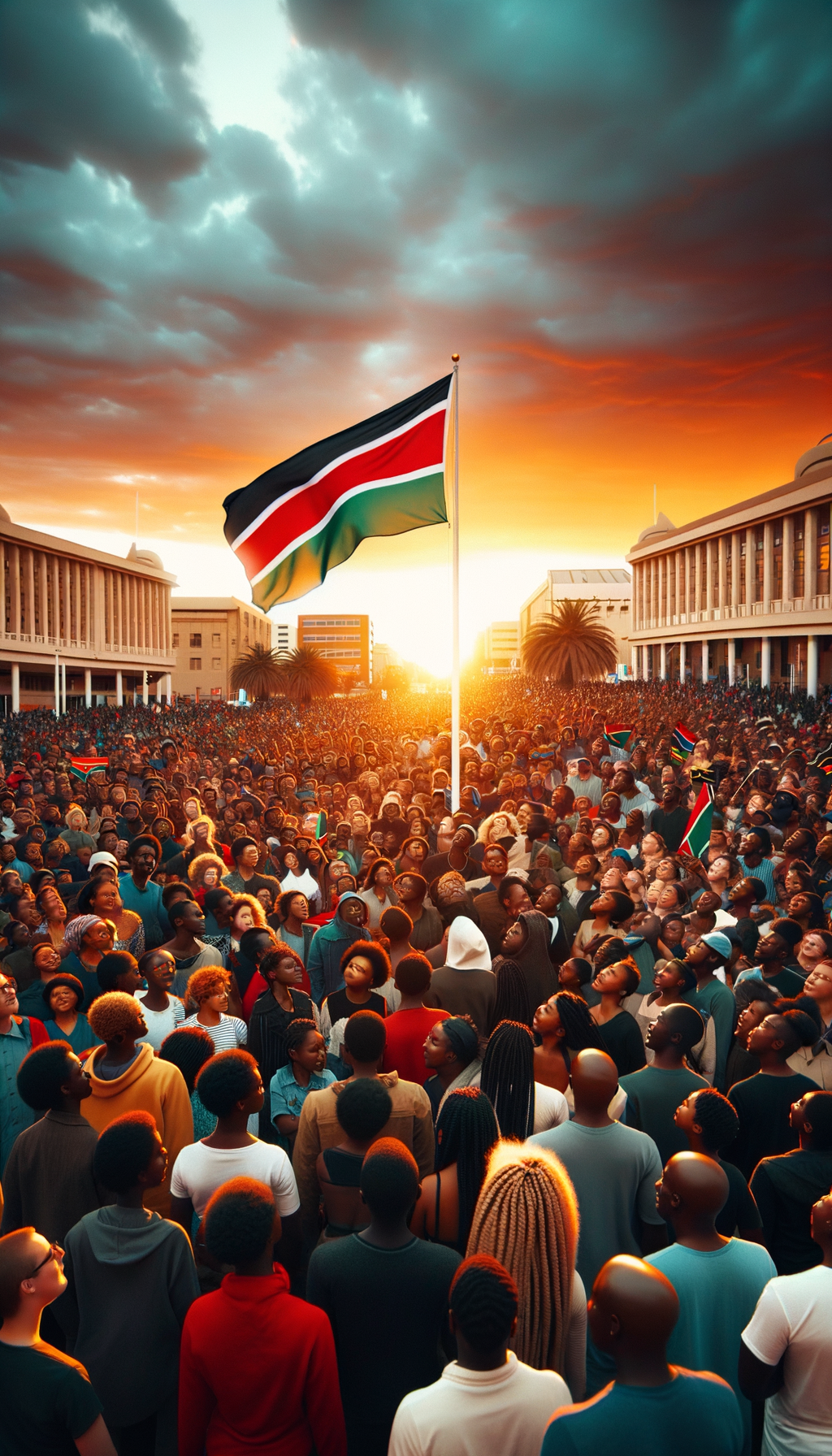Namibia – The Dawn of Freedom: Namibia's Independence Day, 1990
TLDR;
- Event: Namibia gained independence from South African administration on March 21, 1990, marking the end of a long struggle against apartheid and colonial rule.
- Significance: The independence was achieved through the efforts of SWAPO and the implementation of UN Resolution 435, which facilitated free elections and the withdrawal of South African forces.
- Celebration: The first Namibian President, Sam Nujoma, was sworn in, symbolizing the start of a new sovereign nation.
- Legacy: Namibia’s independence day represents the triumph of resilience and unity in the face of oppression, inspiring ongoing global movements for self-determination.
–
Story
The sun rose over Windhoek on March 21, 1990, casting a golden glow on a nation reborn. Thousands gathered, their hearts swelling with pride and anticipation, as the Namibian flag was hoisted for the first time. The air was electric with the promise of freedom and the end of a long, arduous journey toward independence.

For decades, Namibia had been under South African administration, a period marked by struggle and resistance. Namibia was administered by South Africa from 1915, following World War I, when it was taken from German colonial control, until its independence in 1990. This period was marked by South Africa’s imposition of apartheid policies in Namibia. The path to independence was fraught with challenges, including a protracted liberation war led by the South West Africa People’s Organization (SWAPO) and complex international negotiations. Yet, the spirit of the Namibian people remained unbroken.
The turning point came with the implementation of United Nations Resolution 435, which laid the groundwork for free elections and the eventual withdrawal of South African forces. It should be noted that this resolution was adopted in 1978, but its implementation was delayed until 1989 due to various geopolitical factors and negotiations. On this historic day, Namibia’s first President, Sam Nujoma, took the oath of office, symbolizing the birth of a new era.
The celebration was not just a political victory but a testament to the resilience and determination of a people who had fought tirelessly for their right to self-determination. As the world watched, Namibia stepped onto the global stage as a sovereign nation, ready to forge its own destiny.
The echoes of that day continue to resonate, reminding us of the power of unity and the enduring quest for freedom.
–
| Would a different approach to negotiations have changed Namibia’s path to independence? |